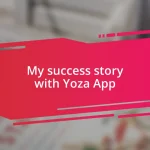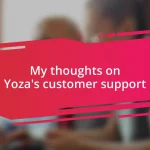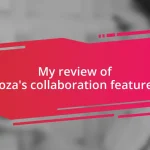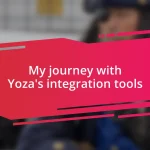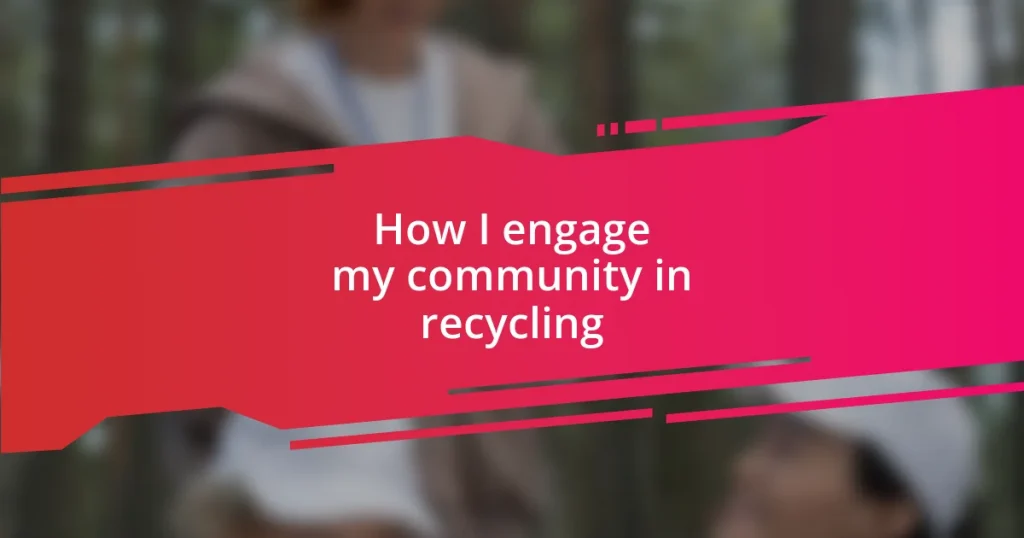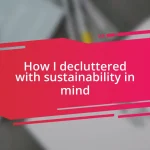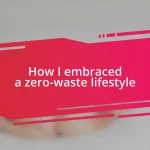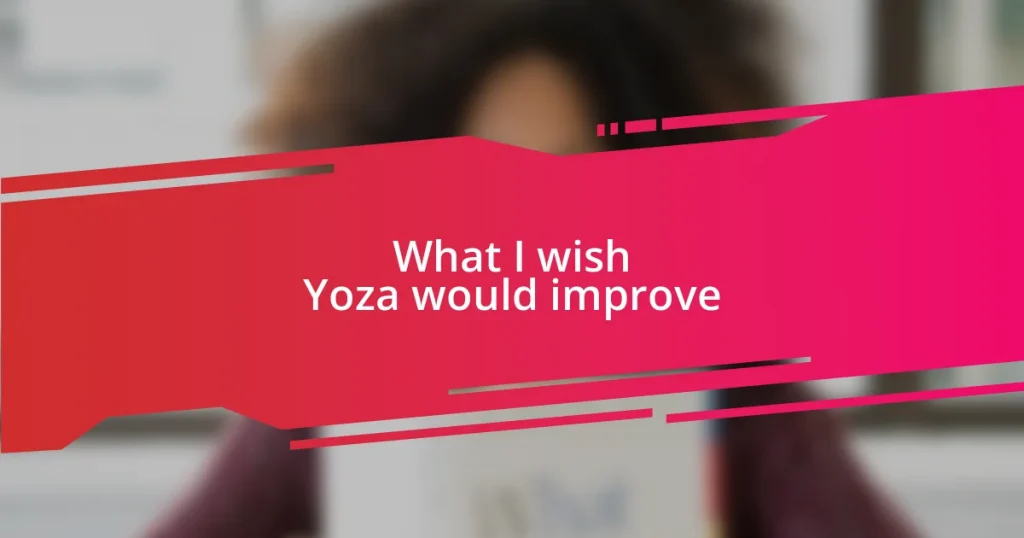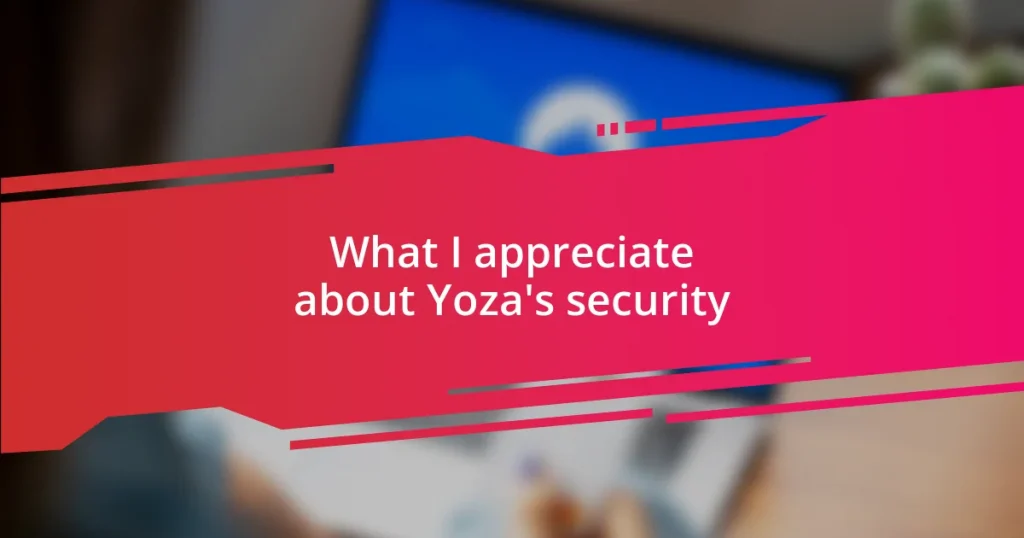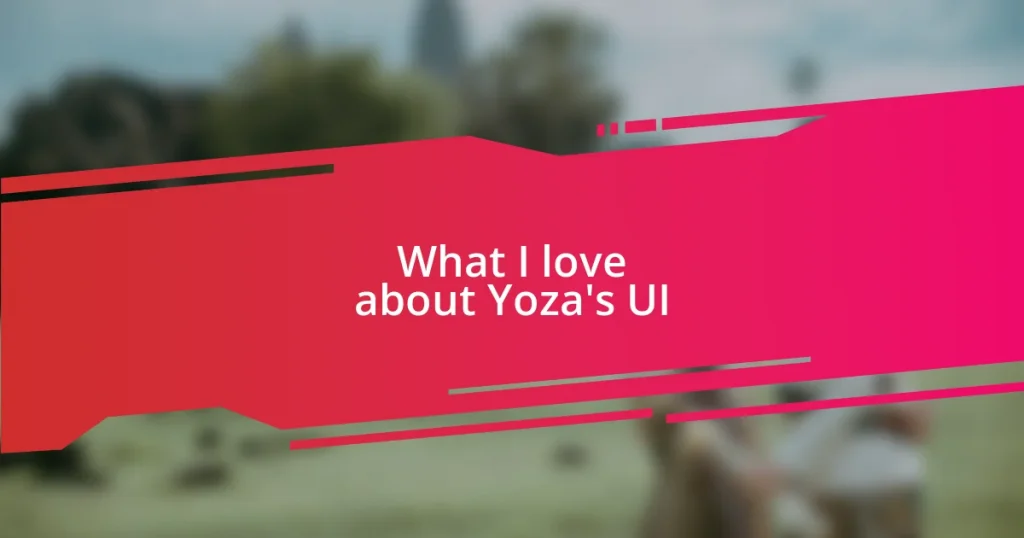Key takeaways:
- Community recycling fosters unity and pride, as seen in local challenges and educational events that engage residents.
- Identifying local recycling needs through surveys can tailor programs effectively, addressing specific community barriers and awareness levels.
- Collaboration with local organizations and using social media enhances outreach and participation, creating a greater impact on recycling habits.
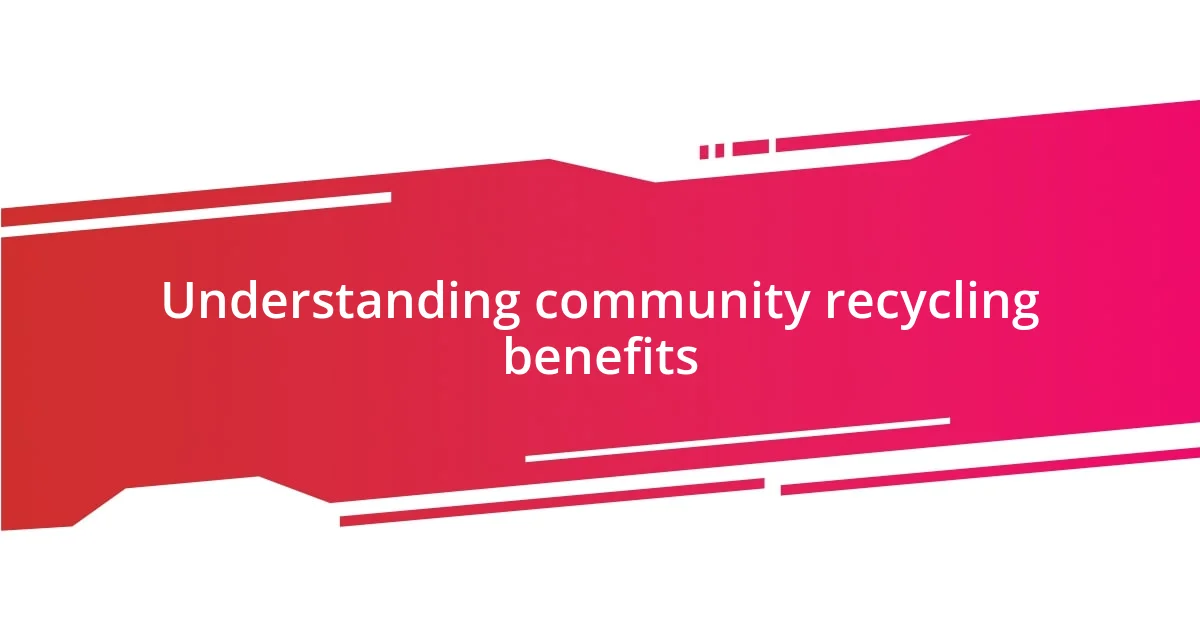
Understanding community recycling benefits
Understanding the benefits of community recycling is something I’ve come to appreciate through my own experiences. For instance, when my neighborhood organized a recycling challenge, the excitement was palpable. Everyone got involved, and I witnessed firsthand how much pride people took in contributing to our environment. Isn’t it amazing how a small action can spark a collective effort that’s both fun and purpose-driven?
Engaging the community in recycling also fosters a sense of unity. I remember one weekend when my friends and I set up a booth at our local farmer’s market, educating others about the importance of proper recycling practices. The conversations flowed, ideas were exchanged, and it felt like we were building something meaningful together—don’t you think that communal spirit makes the effort worthwhile? It became clear to me that recycling isn’t just about waste reduction; it’s an opportunity to create connections.
Moreover, the economic benefits of community recycling don’t go unnoticed. I’ve seen local businesses flourish by promoting sustainable practices and encouraging customers to bring recyclable materials. It got me reflecting—how great is it that our efforts can also contribute to economic growth while saving the planet? Each recycled bottle or paper helps create jobs, lower costs, and protect our environment, and those outcomes are far too significant to overlook.
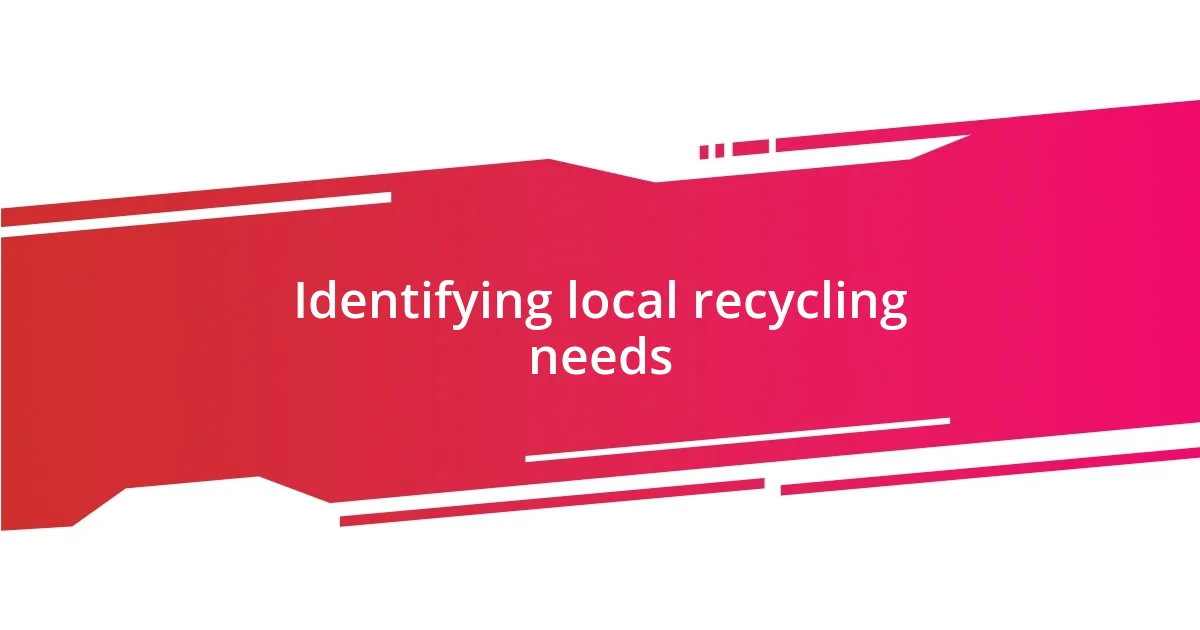
Identifying local recycling needs
To identify local recycling needs, I believe it’s crucial to engage directly with the community. For instance, when my town hosted a survey at a community event, I noticed how quickly people opened up about their recycling habits and challenges. This firsthand feedback was invaluable; it revealed the specific materials residents found difficult to recycle and the barriers they faced. Understanding these needs allows us to tailor our recycling programs more effectively.
Here are some key areas to explore when assessing local recycling needs:
- Commonly discarded items: What materials do residents frequently throw away?
- Accessibility: Are there enough recycling bins in the community, and are they conveniently located?
- Awareness levels: Do people understand what can and cannot be recycled?
- Community participation: How involved are residents currently in local recycling initiatives?
- Barriers: What are the perceived challenges preventing effective recycling participation?
By focusing on these aspects, I feel we can create more targeted and impactful recycling strategies that resonate with residents’ actual experiences. It’s about meeting people where they are, and I’ve seen how empowering this knowledge can be.
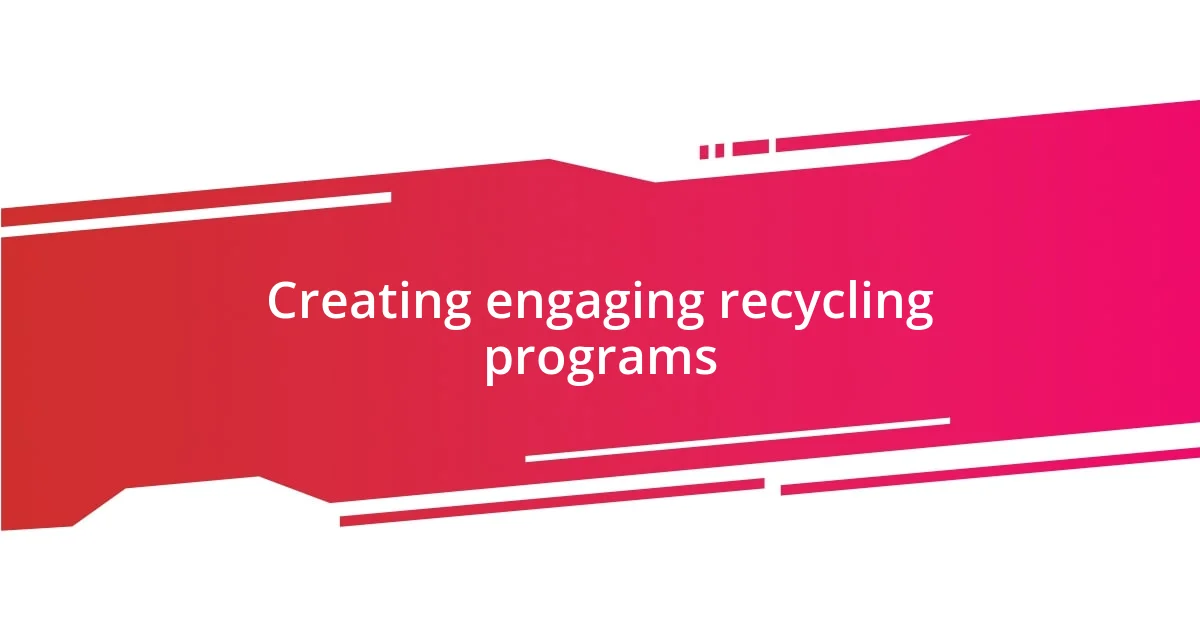
Creating engaging recycling programs
Creating engaging recycling programs requires creativity and community involvement. One successful initiative I witnessed involved a local competition where neighborhoods competed for the highest recycling rates. The villages turned it into a fun event, with team spirit soaring as families decorated their recycling bins. It’s remarkable how a little friendly competition can motivate people—I felt the enthusiasm firsthand when I saw neighbors proudly showcasing their efforts.
Moreover, I’ve realized that education plays a pivotal role in recycling programs. At one community center, we organized interactive workshops for residents, teaching them how to sort recyclables correctly. Surprisingly, people became genuinely interested when we incorporated hands-on activities, like creating art from recycled materials. Observing participants’ eyes light up as they realized the potential in what was previously considered waste was genuinely rewarding. It’s moments like these that reaffirm my belief that learning and engaging can go hand in hand.
Lastly, collaboration with local schools has proven invaluable. I’ve partnered with teachers to implement recycling clubs, allowing students to lead initiatives in their own communities. It’s wonderful to see young minds sparking enthusiasm among their families about recycling. During a recent event where students showcased their recycled art projects, the pride in their achievements was unmistakable. In these exchanges, I’ve found that involving children not only educates them but also inspires positive changes in household habits.
| Engagement Strategies | Description |
|---|---|
| Neighborhood Competitions | Create excitement and camaraderie through friendly rivalry. |
| Educational Workshops | Offer hands-on learning opportunities that foster a deeper understanding of recycling. |
| School Partnerships | Leverage student involvement to drive community-wide changes. |
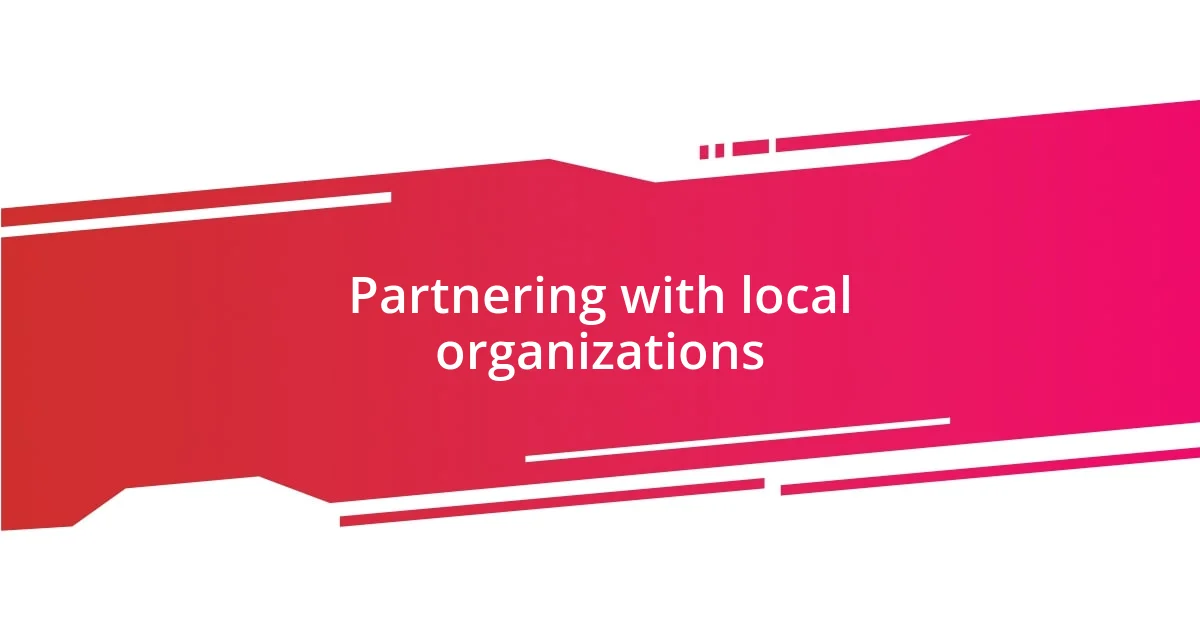
Partnering with local organizations
Partnering with local organizations has been a game-changer in my community’s recycling efforts. I once collaborated with a nearby nonprofit focused on environmental education. Together, we organized a community clean-up event that included recycling booths, making it a one-stop shop for eco-friendly practices. Seeing the excitement on residents’ faces as they learned about proper recycling methods was incredibly uplifting for me.
Additionally, working with local businesses has created a ripple effect. One memorable partnership was with a popular cafe that decided to offer discounts to customers who brought their own reusable containers. It was heartwarming to watch patrons embrace sustainable practices just for a little incentive. I often wonder: what other simple changes could motivate others like this? This type of engagement not only encourages better habits but also fosters a sense of community ownership over our environment.
Through my experiences, I’ve realized that collaboration can extend even further. By teaming up with local artists, we launched a project to transform recyclable materials into public art installations. I still remember the first unveiling; the joy and pride were palpable as we looked around at the vibrant pieces created from what would’ve been discarded. It made me think—how powerful can creativity be in driving change? These partnerships have not only amplified our recycling message but have woven a stronger community fabric.
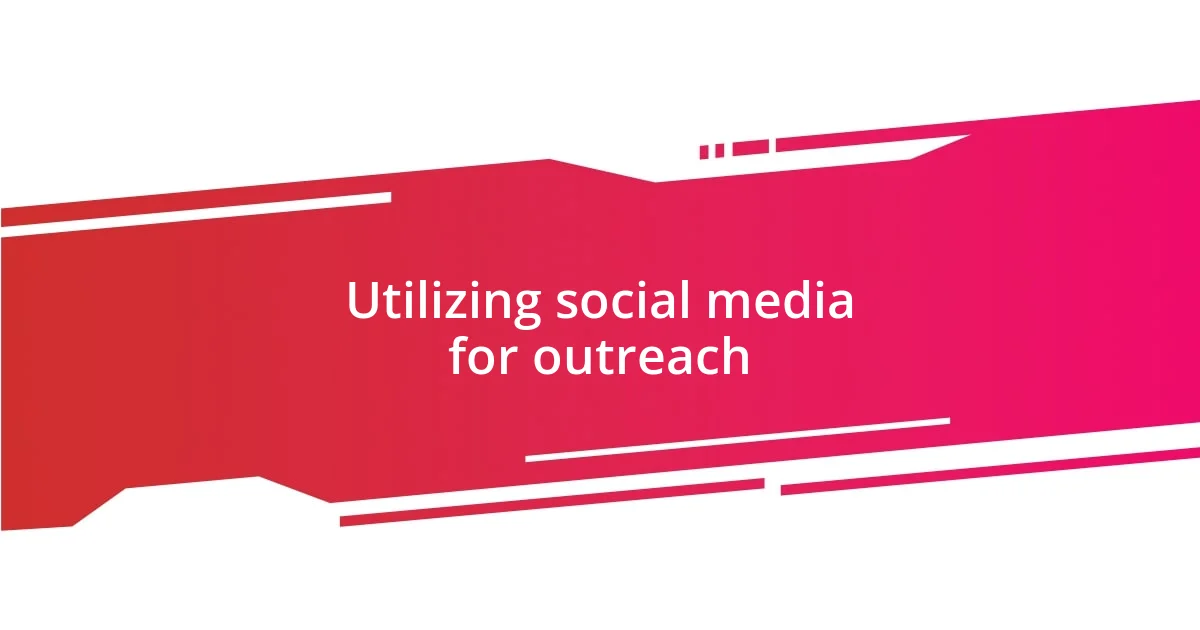
Utilizing social media for outreach
Social media has become an incredible tool for promoting recycling efforts in my community. I started a Facebook group dedicated to sharing tips, events, and success stories related to recycling, and the response has been overwhelmingly positive. I remember one particular post where a neighbor shared photos of their family participating in a recycling drive. The joy they expressed through their pictures and comments sparked an avalanche of interactions, reinforcing my belief in community solidarity around sustainability.
Using Instagram, I’ve also found that visually engaging content captures attention more effectively than text alone. I began posting short videos showcasing innovative recycling projects—like turning old cans into planters—which quickly resonated with our audience. Seeing people tag their friends to inspire them made me feel like we were building a community of recyclers, all learning from each other. Isn’t it fascinating how a simple digital platform can foster real-life connections?
Moreover, I’ve organized online challenges to encourage participation. One time, we launched a month-long “Zero Waste Challenge,” where participants shared their journeys using the hashtag #OurEcoEffort. The enthusiasm was contagious! I smiled every time someone shared their unique solutions for reducing waste; it was a reminder that even small actions, when highlighted through social media, can have a ripple effect. Engaging with our community online has truly transformed how we think about and approach recycling.
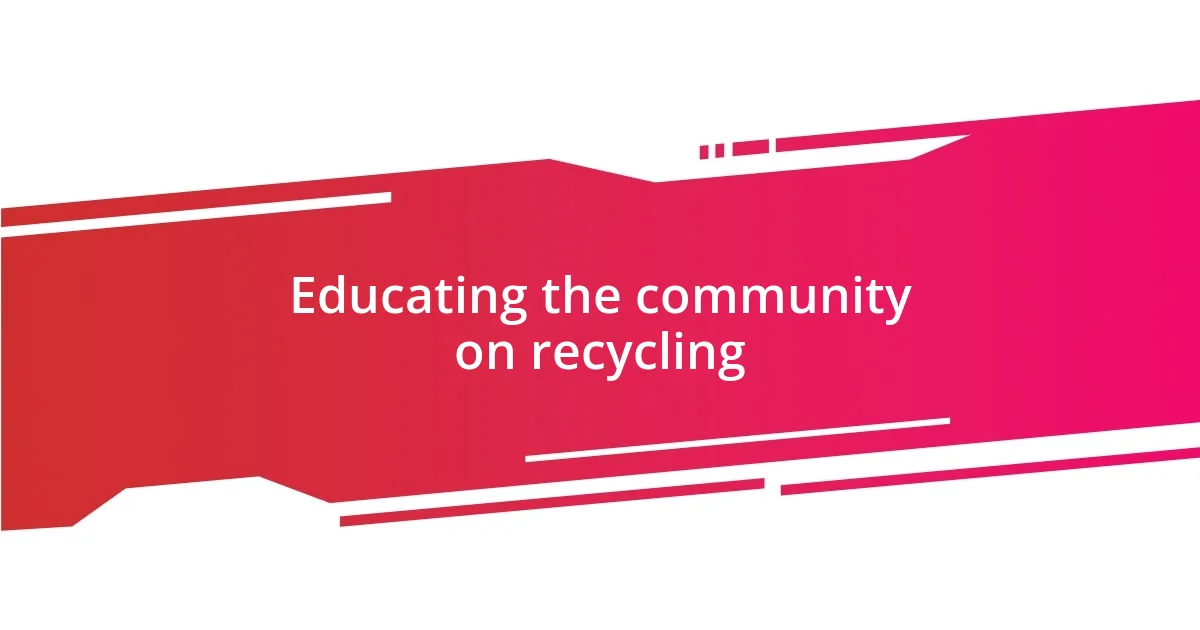
Educating the community on recycling
Educating my community on recycling has been one of the most rewarding experiences I’ve embarked upon. I remember holding a small workshop at our local library where I invited families to learn about the importance of recycling. It was so fulfilling to see the children’s eyes light up with curiosity as they engaged in hands-on activities, like sorting recyclables. The laughter and teamwork I witnessed that day made me think—what better way to instill lasting habits than to involve our youngest eco-warriors?
I’ve found that people often underestimate the power of storytelling in education. During one community event, I shared a personal story about how my own recycling habits evolved over the years. I emphasized the small changes I made—from composting food scraps to upcycling old furniture—and how each step made a difference. Seeing the nods and shared smiles from the audience convinced me of the impact personal narratives can have. It raises a question: if we can connect on a personal level, might we inspire others to embark on their own recycling journeys?
Creating educational materials like pamphlets or infographics has also proven effective. I once designed a colorful guide illustrating what can and cannot be recycled in our area. After distributing these at a local farmers’ market, I was thrilled to overhear conversations among people discussing their recycling practices, referencing the guide. It made me realize how practical tools can foster vital discussions—so I often wonder, what innovative resources can we create next to further simplify recycling for everyone?




